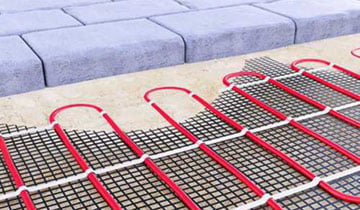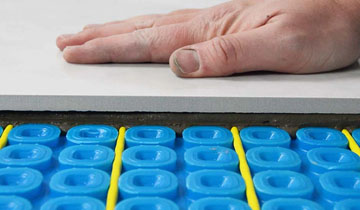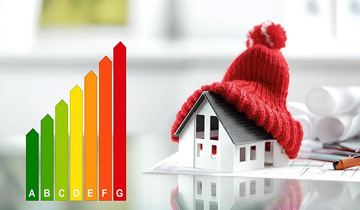6 min read
What are the disadvantages of electric heating?
The energy crisis and extreme price volatility in fossil fuel markets has had a dramatic impact on the cost of living for many homeowners, and as a...

Historically popular in areas such as Scandinavia and the US, outdoor heating is rising in popularity throughout the UK for both residential and commercial applications. The increase in cold snaps such as the infamous ‘Beast from the East’ has certainly contributed to a rise in the installation of preventative measures such as driveway heating and frost protection.
During severe cold weather spells as many as 3,500 claims were recorded in a single day for burst pipe damage which cost the average household £7,000. That’s a significant amount! Also, don’t forget that under the Occupiers Liability Act 1984, householders have a duty of care towards visitors travelling across their land such as footpaths and driveways. A snow or ice covered driveway is a clear hazard which could cause someone to slip and hurt themselves.
Electric heating systems for driveways can be used under virtually any surface to ensure it remains free from potential ice and snow build up. The robust heating cable is controlled by an intelligent thermostat which measures both the temperature and the moisture level via a sensor at ground level. The thermostat is programmable, so it can be set up for specific conditions which triggers the heating to turn on.
Gutter and pipe heating only monitors temperature and not moisture. There are two common types of solutions, fixed output and self-regulating. The fixed output solution has a sensor at the end of the cable and when the temperature drops below +100C the whole of the cable heats up. The self-regulating solution reacts to the temperature in sections and doesn’t have a sensor at the end of the cable. For example, if the east side of a house is colder than the rest, only that part of the cable will heat up. This means that only sections of the cable will turn on when they need to and there is no concern regarding placement of the sensor.
Once an outdoor electric heating system is installed there is minimal maintenance required and it will automatically switch on when needed. The cost to run the system depends on the size of the heated area, energy provider and frequency the system is running.
Want to know more about your ThermoSphere outdoor heating options? Contact us.

6 min read
The energy crisis and extreme price volatility in fossil fuel markets has had a dramatic impact on the cost of living for many homeowners, and as a...

6 min read
With the colder months approaching, many of us will be planning to turn the heating on or looking at new ways of heating our rooms cost effectively....

5 min read
If you are looking for energy saving tips on the internet, you’ll be presented a whole heap of different options. From not using a tumble dryer to...